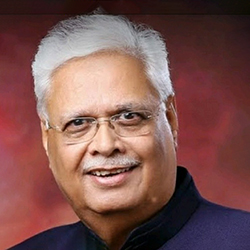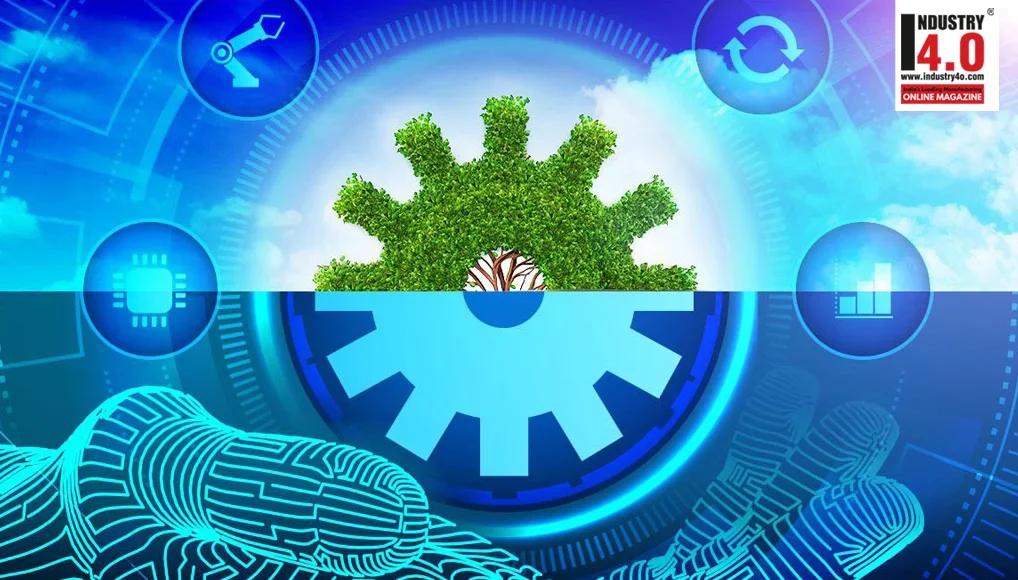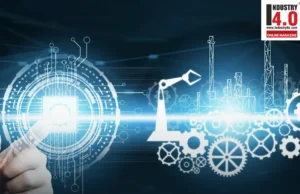Advancement in Manufacturing through Sustainable Industry 4.0
Manufacturing industry has undergone significant transformation over the last few years, driven by technological advancements, shifting market demands, and global disruptions like the COVID-19 pandemic. Here are some key trends and developments that have shaped modern manufacturing:
1. Industry 4.0 and Smart Manufacturing : Industry 4.0, often called the Fourth Industrial Revolution, has been a major driver of change. It emphasizes the integration of digital technologies into manufacturing processes. This involves Robotics and Automation, Internet of Things (IoT), AI and Machine Learning and Digital Twins.
2. 3D Printing (Additive Manufacturing): 3D printing has gained traction in industries such as aerospace, automotive, and healthcare. It allows for rapid prototyping and the production of complex, customized parts with reduced material waste.
3. Supply Chain Digitization and Resilience : Global supply chains have become more digitalized, with manufacturers leveraging technologies like blockchain, IoT, and AI to gain more visibility and control.
4. Customized and On-Demand Production : Manufacturers are increasingly adopting flexible manufacturing models to cater to consumer demands for customization.
5. Workforce Transformation : While automation has taken over many manual tasks, it has also created demand for new skills. Workers are now required to have digital and technical expertise to operate advanced machines and analyse data. Upskilling and reskilling the workforce has become a major focus for manufacturers.
In Conclusion, The manufacturing industry has evolved toward greater digitization, automation, and sustainability. The integration of smart technologies, combined with the lessons learned from recent global disruptions, has set the stage for more resilient and flexible manufacturing models, which are now tailored to meet consumer needs for personalization, speed, and eco-consciousness. Moreover, We are able to meet the requirements of customers globally for Quality , reliability , Volumes ( scalability ) and price. Implementing Industry 4.0 technologies offers manufacturers substantial benefits, such as enhanced efficiency, real-time data insights, and better decision-making.
Challenges in Implementing Industry 4.0
Implementing Industry 4.0 technologies brings several challenges. Staying competitive in the global market, particularly with increasing demands for quality and innovation, requires overcoming these hurdles while continuing to push boundaries. Here are the main challenges manufacturers face when adopting Industry 4.0 technologies and strategies to stay competitive:
1. High Initial Investment and ROI Uncertainty: Robotics, AI, IoT, and data analytics require significant capital investment in hardware, software, and infrastructure upgrades. For many manufacturers, particularly small and medium enterprises (SMEs), the cost can be prohibitive. Additionally, calculating the return on investment (ROI) can be difficult because the benefits of these technologies may take time to materialize.
2. Integration with Legacy Systems: Many manufacturers operate with legacy equipment and systems that are not designed to be compatible with modern Industry 4.0 technologies. This creates challenges when trying to integrate new technologies, leading to issues such as data silos, operational inefficiencies, or cybersecurity risks.
3. Skill Gaps and Workforce Training: The adoption of advanced digital technologies requires a workforce with new skills, such as data analysis, machine learning, robotics programming, and IT cybersecurity. Many manufacturers face a skills gap, as existing employees may lack the technical expertise to operate and maintain smart systems.
4. Cybersecurity Risks: As manufacturing systems become increasingly connected, the risk of cyberattacks grows. Industrial control systems (ICS), IoT devices, and cloud-connected networks can be vulnerable to hacking, data theft, and operational disruptions.
5. Data Overload and Analytics: Industry 4.0 generates vast amounts of data from connected devices and sensors, but many manufacturers struggle to process and analyse this data effectively.
6. Resistance to Change and Organizational Culture: Cultural resistance to change is common in many traditional manufacturing environments. Employees may be sceptical about new technologies, fearing job displacement or increased workloads.
7. Sustainability Demands: As regulations and consumer expectations for sustainable practices increase, manufacturers face pressure to reduce their environmental footprint while still being cost-effective.
8. Supply Chain Complexity: Industry 4.0 requires supply chains to be more transparent, flexible, and connected
In conclusion Successfully implementing Industry 4.0 technologies is crucial for manufacturers looking to remain competitive in an increasingly demanding global market. However, the journey comes with several challenges as above .
Sustainability
Sustainability has become critically important in the manufacturing industry due to increasing regulatory pressures, growing consumer demand for eco-friendly products, and the broader recognition of the need to address environmental challenges such as climate change and resource depletion. Companies that fail to incorporate sustainable practices risk losing market share, facing reputational damage, and incurring regulatory penalties. Conversely, those that prioritize sustainability can enjoy competitive advantages, such as improved efficiency, cost savings, brand loyalty, and compliance with emerging regulations.
Steps to Balance Efficiency with Environmental Responsibility:
1. Adopt Circular Economy Models: The circular economy involves designing products and processes that reduce waste, promote recycling, and extend the lifecycle of materials.
2. Energy Efficiency in Operations: Investing in energy-efficient technologies and practices can significantly reduce both operational costs and environmental impact.
3. Sustainable Sourcing of Materials: Manufacturers should prioritize sourcing raw materials from sustainable, ethical, and environmentally responsible suppliers.
4. Reduce Waste and Water Use: Waste reduction is a core tenet of sustainable manufacturing.
5. Adopt Green Logistics and Supply Chains: The environmental impact of manufacturing extends beyond production to the entire supply chain.
6. Carbon Footprint Reduction and Emissions Control: Setting ambitious carbon reduction targets and tracking emissions across all production stages is crucial
7. Implement Eco-friendly Manufacturing Technologies: Companies should invest in advanced manufacturing technologies that reduce waste, energy use, and environmental impact
In conclusion Sustainability in manufacturing is no longer optional—it is essential for long-term success.
About the author :

Mr. Shailendra Goswami
Chairman and Managing Director,
Pushkaraj Group ( www.pushkaraj.com ) &
Coherent Net-Solutions Pvt.Ltd. (CNSPL)
![]()
Mr. Shailendra Goswami is a Graduate Engineer from College of Engineering, Pune (1974) and a Post Graduate Diploma in Management from Indian Institute of Management, Bangalore (1977).
Mr. Shailendra Goswami served in industry for about 16 years before starting his own business in 1992.
From the beginning, Mr. Shailendra Goswami has been at the helm of the group and guided its path and growth to become one of the recognized groups, contributing its efforts towards cost reduction & technology solutions of various engineering products, however maintaining international quality standards with appropriate product support.
Mr. Shailendra Goswami has 47 years of experience in Management, Marketing & operations.
Mr. Shailendra Goswami have been on the Advisory Boards of Manufacturing Industries, IT Industry , Academic Institutions and in Innovation & Entrepreneurship platforms.
Mr. Shailendra Goswami is a Global Mentor at International Startup Foundation ( ISF ).
Mr. Shailendra Goswami is Exclusive President’s Select Member at Leaders Excellence at Harvard Square.
Mr. Shailendra Goswami is a Member Governing Body Marathwada Mitramandal’s college of Engineering ( MMCOE ).
Mr. Shailendra Goswami have been speaking on different topics in Domestic as well as International platforms.
Following are the activities Pushkaraj Group undertakes :
Cost reduction / Global sourcing / Agency sales division / Exports / Technology Forecasting / Management Consulting / Engineering Services / Manufacturing wiring Harnesses / Local system Integration / IT services etc.,
Pushkaraj Group offer and manage end to end solutions to their customers in the areas of Cost Reduction and Global sourcing of castings, forgings, stamped parts, rubber and plastic parts, auto parts, parts required for diesel engines, Contract manufacturing of electrical/electronic parts, PCBs, Wiring Harnesses, Controllers etc.
Pushkaraj Group also help Overseas companies Conceptualizing and establish their customer base in India , Advising New Businesses , Contributing to overall growth and if required help in establishing manufacturing base in India, subsequently.
Pushkaraj Group arrange for Technology Tie-ups & JVs.
For details please visit our websites:
pushkaraj | coherentnetsolutions | adityaent | pushkarajconsultancy
Associate Company :
Mr. Shailendra Goswami can be contacted at :
E-mail | LinkedIn | Website1 | Website2












